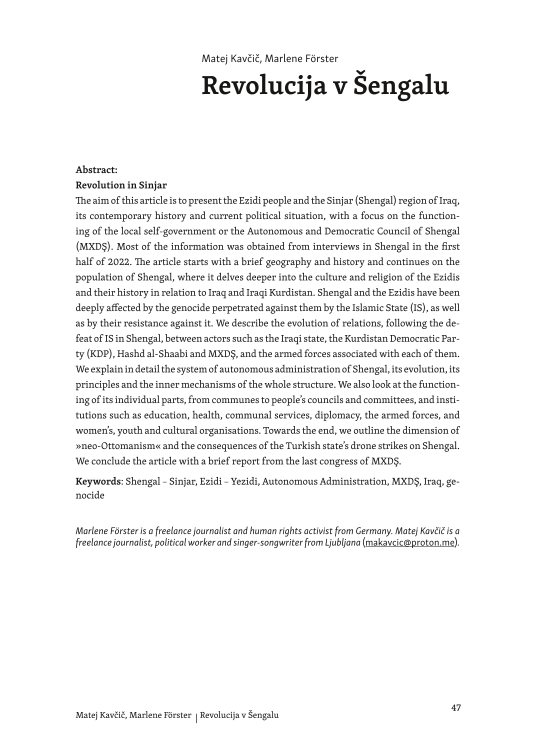The aim of this article is to present the Ezidi people and the Sinjar (Shengal) region of Iraq, its contemporary history and current political situation, with a focus on the functioning of the local self-government or the Autonomous and Democratic Council of Shengal (MXDŞ). Most of the information was obtained from interviews in Shengal in the first half of 2022. The article starts with a brief geography and history and continues on the population of Shengal, where it delves deeper into the culture and religion of the Ezidis and their history in relation to Iraq and Iraqi Kurdistan. Shengal and the Ezidis have been deeply affected by the genocide perpetrated against them by the Islamic State (IS), as well as by their resistance against it. We describe the evolution of relations, following the defeat of IS in Shengal, between actors such as the Iraqi state, the Kurdistan Democratic Party (KDP), Hashd al-Shaabi and MXDŞ, and the armed forces associated with each of them. We explain in detail the system of autonomous administration of Shengal, its evolution, its principles and the inner mechanisms of the whole structure. We also look at the functioning of its individual parts, from communes to people’s councils and committees, and institutions such as education, health, communal services, diplomacy, the armed forces, and women’s, youth and cultural organisations. Towards the end, we outline the dimension of »neo-Ottomanism« and the consequences of the Turkish state’s drone strikes on Shengal. We conclude the article with a brief report from the last congress of MXDŞ.




